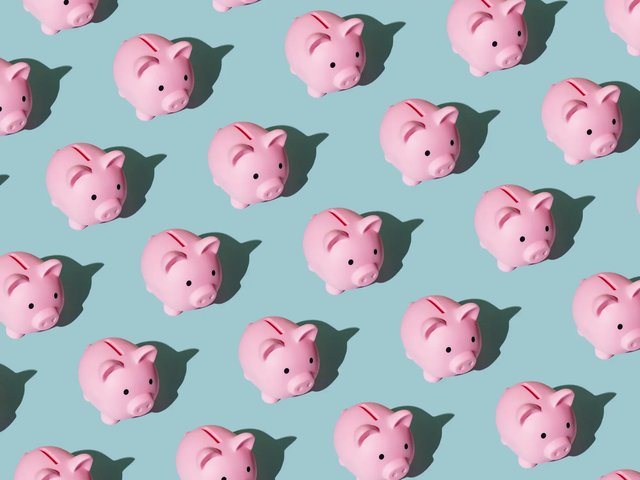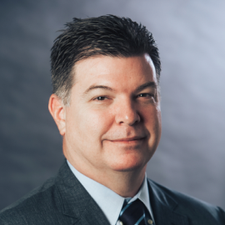
Tim Denning
June 26, 2023
A poor money mindset makes you think wealth is due to luck.
In spring 2018, Katie was on her way to work at Facebook. She was reading her favorite newsletter in the car on her phone at a red light. The police pulled her over and gave her a big fat fine. Once the police drove away, nice girl Katie began to swear like a drunken sailor at herself.

Cash is mostly trash — having too much of it around will cause it to rot. Tanja Ivanova/Getty Images
Once she safely got to the car park at her work, she tweeted at the Morning Brew newsletter account, "I love your newsletter so much I'm willing to pay a $150 fine just to read it." The Morning Brew CEO Austin Rief saw her tweet and replied: "Hey, that's hilarious. We're going to pay for the ticket."
Katie now had a loose connection with Austin, who followed her. Two years later she launched her own newsletter and tweeted about it. Austin would see it.
Fast-forward to now and Katie Gatti Tassin's newsletter is part of the massive Morning Brew newsletter, and she's financially independent because of the deal. No more work commutes to Facebook either.
A poor mindset would say Katie got lucky. But really, she made her own luck. As an ex-banker and personal-finance writer, I've seen this pattern over and over.
You make your own luck. Here are a few more money habits keeping you poor.
1. Falling in love with a savings account
(Also known as your bank's investment fund.) Cash is mostly trash. Having too much of it around will cause it to rot, thanks to inflation and currency devaluation. Sure, money in a savings account gives you options. But too much money saved up is also a sign of fear.
How do I know? I was that scared guy. I always had plenty of savings but would never take any risk and buy real estate or invest the money in self-education. So I plodded through life and stayed poor.
Others around me got wealthy on much lower salaries because they were willing to take a little risk and not think every year was going to be another recession.
I got this poor money mindset from the 2008 recession. The day Lehman Brothers collapsed, I lost faith in the global financial system. I was wrong.
The funny-money game that runs the world is a system to learn about. Once you do, you'll never be worried about a savings account again.
2. Not thinking money matters
We live in an era when money virtue signaling is at an all-time high. To hate the idea of money is popular. To eat the rich for breakfast and shame billionaires is now an Olympic sport.
None of this happens because it's right. No, it's a way to build fake social capital that's supposed to make you feel good. But social capital doesn't pay the bills or help you buy your time back and experience personal freedom. So it's useless.
Money does matter. Money runs the world. Without money, you will starve and have money on the brain 24/7 while you live as a chimpanzee whose mind is stuck in survival mode.
Don't get sucked into the money-hater game. Instead, respect money. Appreciate what it buys you and the freedom it 100% brings.
3. Accidentally falling for the greatest predatory scam on earth
Credit-card companies are angels. The real devil is buy now, pay later — like Klarna and Afterpay. It's a bear trap camouflaged as convenience. "Don't pay in full. No, pay slowly."
The advice is disguised as being financially savvy. It's not. Using debt to buy a $50 pair of sneakers will make you poor and keep you that way.
Let me give you an idea of how bad buy now, pay later is. About a year ago, my online business offered it to customers. Sales went through the roof. I thought I could buy a Shrek-green Lambo and get all the chicks by being a d*ck. There was only one problem: After the first payment, I never got any more payments.
That's right, after six months not one customer ever made a second or third payment — a 100% failure rate. So in a Gordon Ramsay "Kitchen Nightmares" voice, I said to my team, "Shut it down!"
I kept asking potential customers who asked about buy now, pay later what was going on: "Can you get credit from your bank or use a credit card instead?"
Again, without fail, every customer replied with some version of "I tried to get credit" or "My credit score is shot." So if their bank won't give them credit, then it's unwise for me to become their bank.
Buy now, pay later is a scam. When you don't pay, they charge predatory fees and make you poorer. Just don't use it. Do what my 104-year-old grandma advises. "If you can't pay cash, then don't buy it at all." Bless her old soul.
4. Relying on financial willpower
I'm a financially fat slob when it comes to willpower. If there's a way to spend and for me to go broke, then I will. No matter how hard I resist, I can't. About 10 years ago I set up automation. I scheduled payments to go to my investment accounts automatically as soon as I got paid. Then what's leftover is used to pay other people's bills.
It was the best decision I've ever made. I've invested six figures more because of it. I don't even remember the debits anymore. And I'm not even sure how to turn them off.
Use financial automation to become as disciplined as a Navy SEAL.
5. Waiting too long to invest
Trying to time the market is a losing game. Some say property prices will continue to fall. Others say crypto will boom again and you shouldn't miss out. Some predict tech stocks will roar higher or that Google and Microsoft will go crazy once AI goes further mainstream.
But who the F knows? Not me. Not you.
The best time to invest is always right now. Because if you don't, then your money will find a way to flow into something else. Guaranteed. As the cliché goes: Time in the financial markets beats timing the market.
6. Trying to live the #LuxuryLife
Instagram is the real scamdemic. It's convinced a generation to buy stuff they don't need to impress people that don't give a crap about them. What few people know is that most of the photos on Instagram aren't real. The cars are rented. So are the homes. And the holidays are fake, too.
Trying to keep up with people financially based on their age is silly. We all make money at different stages of life. And we will likely all lose a bunch of money at different stages, too.
I would never have predicted I'd lose over $1 million in my 30s. But I did. Stuff happens. You're either in the money game or on the sidelines with no chance of getting moderately wealthy. Being half-pregnant rarely produces a big-money baby.
Forget about luxury. It's just a smart way to extract more money from you for the same stuff you could buy unbranded for half the price and twice the quality. Luxury is a trap that keeps you poor.
7. Focusing on expenses
I see people play this game all the time. They're hell-bent on saving money, using coupons, getting friends to pay for their meals, and working to budgets that are more strict than a prison sentence. It's the totally wrong approach.
If you don't have enough money, it's better to make more money. There's only so far you can save money and cut expenses before you're wearing underwear with holes in them and waiting 60 minutes for a bus to get to work.
To become more valuable, you need to upgrade your skills. All of us can do that with a WiFi connection. Reprogram your mind to focus on skills, not on expenses.
8. Not saving on tax
I don't know why more people don't talk about this. Half of every dollar I make goes to the government in taxes. So if I can legally pay less taxes, that'd be smart, right?
Now, the virtue signalers out there love to shame this strategy. But that's stupid. Why pay more tax when you don't have to?
Some will start referencing "society" and go all preachy on you. But there's an easy way to fix the problem: Save money on tax and then allocate it to your favorite charity. Problem solved.
One way to pay less tax is to do work under a business. Then you have the flexibility of which tax you pay and when. Another way is to simply hire a good tax advisor and see if real estate or some other option might help you pay less tax.
Everyone is doing it, so if you don't, then you stay poor in relative terms.
Final thought
Change your money habits to get off broke and eventually transition into basic wealth. Money buys time, and all of us could do with more of it.
Subscribe to Business Insider's Financial Insights Newsletter
This Business Insider article was legally licensed by AdvisorStream





